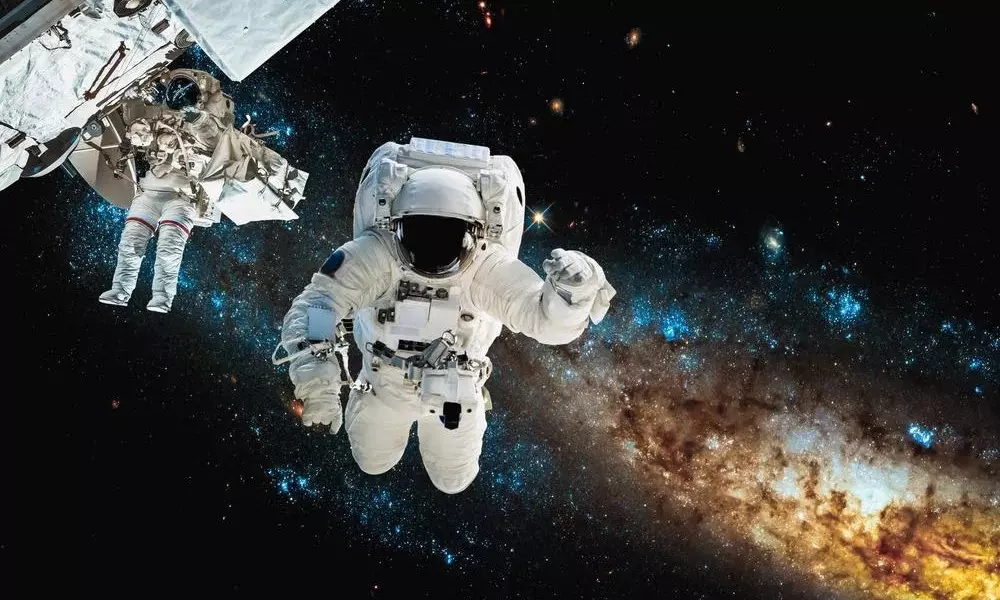
Space travel could impact gene expression, weaken immune system, says study
text_fieldsNew Delhi: Researchers have discovered that space travel has the potential to modify gene expression in white blood cells (WBC) and compromise the immune system which could result in increased susceptibility to infections among astronauts during their time in space.
For instance, astronauts aboard the International Space Station (ISS) commonly experience skin rashes, as well as both respiratory and non-respiratory illnesses.
The study, published in the online journal Frontiers in Immunology, also reveals that astronauts tend to shed higher quantities of live virus particles, including Epstein-Barr virus, varicella-zoster virus (responsible for shingles), herpes-simplex-1 virus (responsible for sores), and cytomegalovirus.
"Here we show that the expression of many genes related to immune functions rapidly decreases when astronauts reach space, while the opposite happens when they return to Earth after six months aboard the ISS," said Dr Odette Laneuville, an associate professor at the University of Ottawa, Canada.
The research was funded by the Canadian Space Agency.
A cohort of 14 astronauts, including three women and 11 men, who resided on the International Space Station between 2015 and 2019, were examined for gene expression in leukocytes (white blood cells) by researchers.
About 15,410 genes were found to be differentially expressed in leukocytes. Among these genes, the researchers identified two clusters, with 247 and 29 genes, respectively, which changed their expression in tandem along the studied timeline, according to the study.
Genes in the first cluster were turned down when they reached space and back up when they returned to Earth, whereas genes in the second did the opposite.
Both clusters were mostly made up of genes that code for proteins, but their primary function was related to immunity in the first cluster and cellular structures and functions in the second.
The researchers said that these results suggest that when someone travels to space, these changes in gene expression cause a rapid decrease in the strength of their immune system.
"A weaker immunity increases the risk of infectious diseases, limiting astronauts' ability to perform their demanding missions in space. If an infection or an immune-related condition was to evolve to a severe state requiring medical care, astronauts while in space would have limited access to care, medication, or evacuation," said Dr Guy Trudel, a rehabilitation physician and researcher at The Ottawa Hospital and professor at the University of Ottawa.
Moreover, the data showed that most genes in either cluster returned to their pre-flight level of expression within one year after return to Earth, and typically much sooner -- on average, after a few weeks.
According to researchers, these results suggest that returning astronauts run an elevated risk of infection for at least one month after landing back on Earth.
With inputs from agencies
 Also Read:With oxygen running out, rescuers make last effort to find Titanic submersible
Also Read:With oxygen running out, rescuers make last effort to find Titanic submersible






















